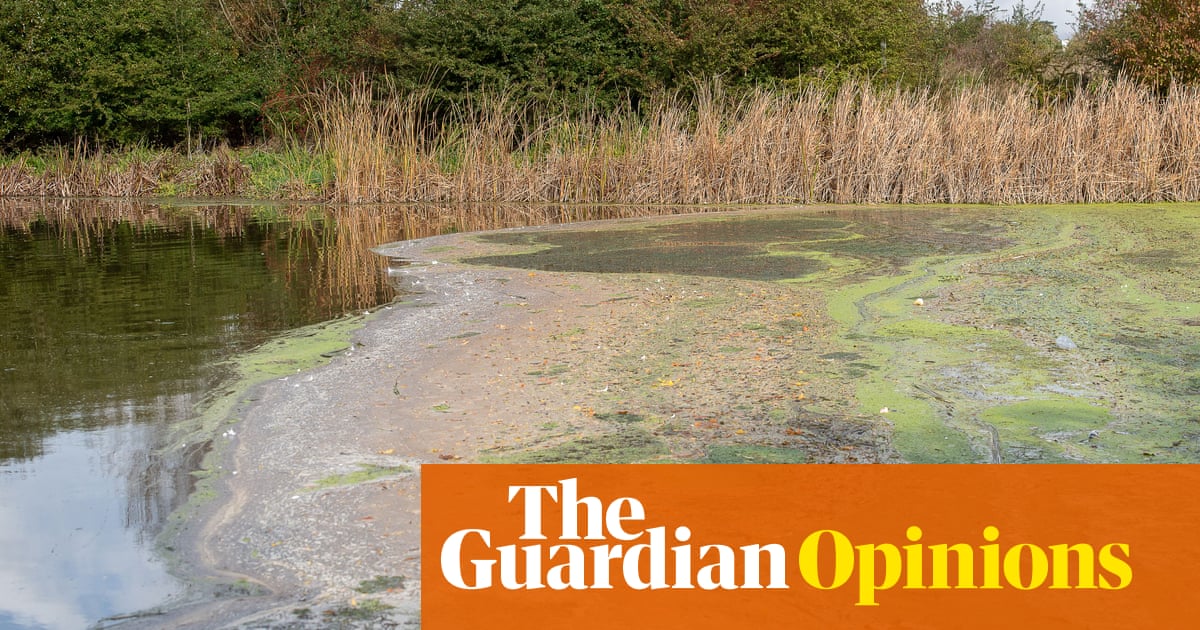So that’s how they do it. I’d been wondering how, when more sewage has been entering our rivers than ever before, some of the water companies have managed to improve the ratio of the sewage they treat v the sewage that pours untreated from their storm overflows into our rivers and the sea. Now we know.
It’s called “flow trimming”. Sounds innocuous, doesn’t it? What it means is that sewage is diverted into rivers and ditches upstream of the water treatment works. By reducing the amount of sewage entering the works, the companies can claim to be dealing responsibly with a higher proportion of it.
It’s a lucrative scam, revealed as a result of digging by Watershed Investigations and the Guardian. Improving “regulatory performance” is expensive. Faking it is cheap, in fact better than cheap, as diverting sewage before it reaches the treatment plant cuts costs. It’s yet another of the perverse incentives baked into privatisation.
Flow trimming is one of the reasons for the disgraceful state of our rivers, not one of which, in England or Northern Ireland, is now in “good overall status”, according to the latest census by the Rivers Trust. It also helps to explain why homes, gardens and streets are being flooded with raw sewage, recreating, in theme-park Britain, the 18th-century experience.
Cutting costs, reaping bonuses and dividends: everyone’s happy, except anyone who believes our rivers and the sea should not be used as open sewers, which is almost the entire population. We confront the central paradox of a system we bizarrely call democracy: to achieve what almost everyone wants, we have to fight almost everyone in power. The Conservatives who privatised water and the Labour governments that failed to renationalise it were not responding to the demands of the people, but to the interests of predatory capital.
The water companies’ business strategy has worked as follows: load themselves with debt to finance dividend payouts; load the future with costs as they fail to build the infrastructure – such as new reservoirs and pipes – required to meet our growing needs; and load the rivers with excrement to avoid the expense of upgrading their plants.
Since the industry was privatised in 1989, the companies have borrowed £64bn. Where has it gone? Down their only leak-free pipeline: the one that leads into shareholders’ pockets. During this period, £78bn has been paid in dividends.
Who has benefited from these schemes? A Guardian analysis in 2022 found that 72% of the water industry in England was by then in foreign ownership. The owners of this essential public service included the Chinese state, the Qatar Investment Authority, the Abu Dhabi Investment Authority, the US company BlackRock and other private equity firms, the Hong Kong tycoon Li Ka-shing, the Malaysian magnate Francis Yeoh and opaque investment vehicles based in secrecy regimes. These are among the owners we know of – other proprietors are impossible to identify. This is the reality of Margaret Thatcher’s great “shareholder democracy”: power and profit migrate offshore.
Now that the debt sewer has backed up, and Thames Water is drowning in its own financial waste products, anyone can see what needs to be done, except those in a position to do it. Both Conservatives and Labour will try every imaginable scheme for addressing this crisis bar the obvious one: bringing it, and, soon afterwards, the rest of the shitshow, permanently back into public ownership.
At prime minister’s questions on 28 November 1989, the Labour MP Bob Cryer pointed out to Thatcher that there was widespread public anger about her proposed privatisation. “Millions of people, over the years, have bought and paid for a comprehensive system of water supply and disposal through the rates. When items are sold off which people already own, it is regarded as legalised theft.” Thatcher replied that “water privatisation I believe will go very successfully indeed. And perhaps therefore we had better wait and see so that we can pontificate in the light of the facts.”
Having waited and seen, we can pontificate in the light of the facts, to the effect that Cryer was right and Thatcher was wrong. But, as with energy privatisation, Brexit and many other disasters, no one in power or with a prospect of power can bring themselves to say it. Why? Because they live in fear. Not of the electorate, which overwhelmingly wants renationalisation, but of the forces they will not name: the billionaire media, party donors and the rest of the unelected infrastructure of economic power. Some democracy, this.
Public services can never be allowed to collapse completely. To secure their own survival, governments will always bail them out. The result? Capital keeps the profits, the state keeps the risk. This relationship is especially stark in the case of Thames Water. If the government temporarily renationalises it, it is likely to acquire most of the company’s £18bn debt. Yet Thames still plans to issue more dividends to its shareholders, while raising bills for its customers by 40%.
To make matters worse, the whole system has been deregulated by stealth. No minister has announced that the rules governing water pollution have been scrapped. Instead, the agencies supposed to enforce them are now so underfunded, understaffed, de-organised and demoralised that the rules might as well not exist.
Bodies like the Environment Agency have coped by mirroring the dodgy strategies of some of the water companies, massaging the figures to make it look as if they’re doing their job. Instead of properly auditing the water firms, the agency has allowed them to “self-monitor”. Self-monitoring is to monitoring what self-esteem is to esteem. When the companies award themselves top marks, the Environment Agency records this as a real result.
Another of the agency’s magnificent oxymorons is “desk-based inspections”. These might expose the chewing gum on the underside of the desk. They do not expose illegal pollution and other crimes, which requires the physical presence of officers, which in turn requires a budget the agency does not possess. This is dysfunction by design: the regulators’ administrative meltdown works marvellously for the water companies, but not for the rest of us.
Our rivers have become disposal chutes not only for sewage, manure and other pollutants, but also for political probity and the public interest. Exactly a year after Thatcher made that statement in the Commons, she resigned as prime minister. We are still mopping up after her.
-
George Monbiot is a Guardian columnist. Join him for a Guardian Live online event on Wednesday 8 May at 8pm BST. He will be talking about his new book, The Invisible Doctrine: The Secret History of Neoliberalism. Book tickets here
-
Do you have an opinion on the issues raised in this article? If you would like to submit a response of up to 300 words by email to be considered for publication in our letters section, please click here.







/cdn.vox-cdn.com/uploads/chorus_asset/file/24390406/STK149_AI_03.jpg)